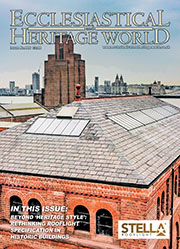Architecture to honour the past and fit the present
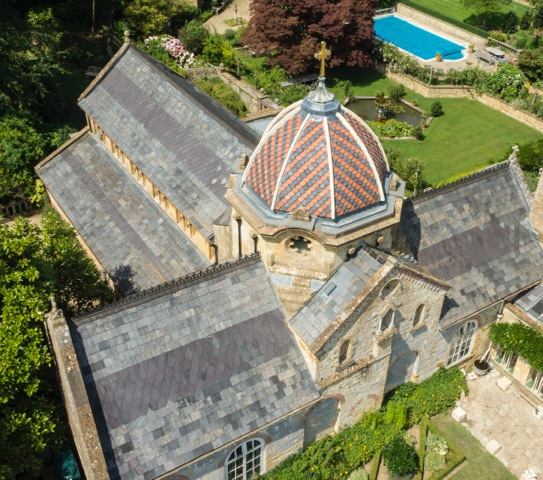 The Chideock Memorial Chapel, part of the Manor of Chideock, is a building rich with ancient English and religious history. Starting life as nothing more than a barn in the grounds of the manor house, it became a place of secret Catholic worship in the wake of the of the Civil War, before Humphrey Weld, and then his son, Charles, transformed the barn into a beautiful church, dedicated to Our Lady, Queen of Martyrs and St. Ignatius, founder of the Society of Jesus.
The Chideock Memorial Chapel, part of the Manor of Chideock, is a building rich with ancient English and religious history. Starting life as nothing more than a barn in the grounds of the manor house, it became a place of secret Catholic worship in the wake of the of the Civil War, before Humphrey Weld, and then his son, Charles, transformed the barn into a beautiful church, dedicated to Our Lady, Queen of Martyrs and St. Ignatius, founder of the Society of Jesus.
Obviously, with such incredible history running through the building’s very foundations, any construction work on the chapel needed the utmost care and attention to detail. Every action would need to be sympathetic to that history, and enhance rather than dilute the chapel’s architectural integrity.
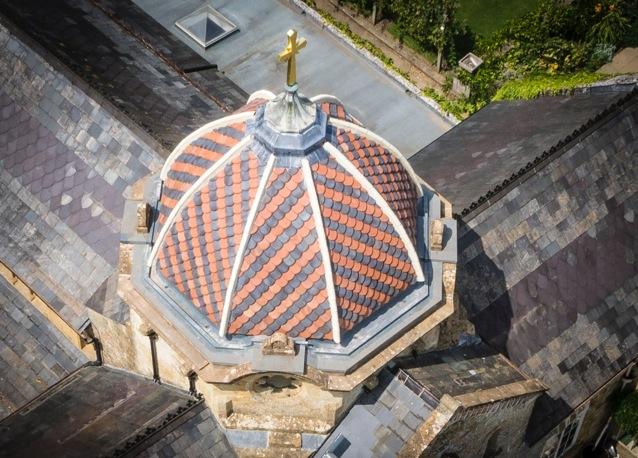 Even with that in mind, this particular project represented a huge technical and aesthetic challenge. The chapel’s striking dome required replacement with something more in keeping with the original style of the building. At some point in its history its original roof had been repaired or replaced with one that might have kept the rain out, but certainly didn’t do justice to the architecture of its construction.
Even with that in mind, this particular project represented a huge technical and aesthetic challenge. The chapel’s striking dome required replacement with something more in keeping with the original style of the building. At some point in its history its original roof had been repaired or replaced with one that might have kept the rain out, but certainly didn’t do justice to the architecture of its construction.
The owner of the chapel, Gaby Martelli, teamed up with architect, Andrew Stone, and main contractors, conservation specialists Magenta Building Repair, to begin the careful process of restoring the church to its former glory in June 2013. The project was finished in July this year – reflecting just how committed each of the involved parties were to the restoration of the dome.
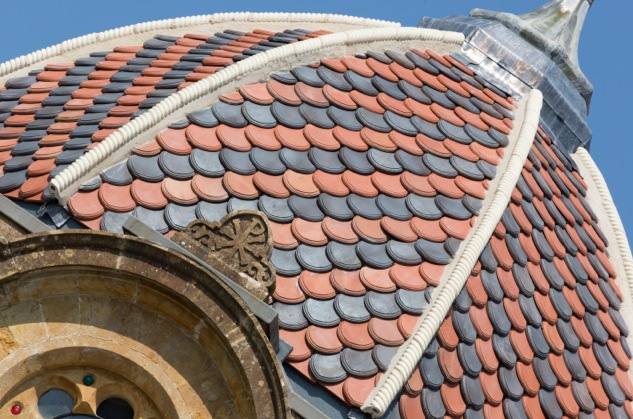 However, at the start of the project, there were some major decisions to be made, with material choices at the heart of many of them. The challenge was to find a modern material that would not only have the durability and strength to last at least as long as the chapel has stood to date, but also suit the building vernacular of the chapel itself. Naturally, building techniques and materials have changed hugely since the church was first created, but wherever possible the architect and owners wanted materials and methods to echo the original design.
However, at the start of the project, there were some major decisions to be made, with material choices at the heart of many of them. The challenge was to find a modern material that would not only have the durability and strength to last at least as long as the chapel has stood to date, but also suit the building vernacular of the chapel itself. Naturally, building techniques and materials have changed hugely since the church was first created, but wherever possible the architect and owners wanted materials and methods to echo the original design.
With that in mind, and on the basis of a series of factory visits to meet the craftsmen and observe the traditional ways of working, the architect specified Sandtoft, Wienerberger’s roof brand, to supply clay roof tiles. Making use of its specialist heritage expertise as part of its Heritage Service, Sandtoft created two bespoke clay tiles for the dome. The first was an interlocking spearhead tile, specifically created to visually reference original old tiles recovered from the barn (even before it became the chapel it is today). These were manufactured in two colours (red and black) so as to provide a striking and complex zig-zag pattern on the completed dome. The second style was buff hip tile, with a barley rub twist on the façade.
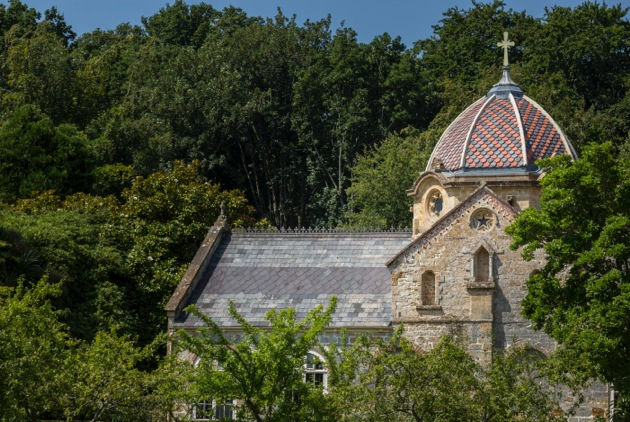 Taken together, these choices have played a huge role in defining the character of the finished project. Domes of this sort are unusual within the UK and of those that do exist, there aren’t many with the age and history of Chideock, so it was important the project’s design was worthy of its rarity. With the bold red and black tiled roofing pattern, the dome crowns a truly beautiful old building, drawing the eye and yet framing the lovely detail and age of the ancient stonework building the supports it.
Taken together, these choices have played a huge role in defining the character of the finished project. Domes of this sort are unusual within the UK and of those that do exist, there aren’t many with the age and history of Chideock, so it was important the project’s design was worthy of its rarity. With the bold red and black tiled roofing pattern, the dome crowns a truly beautiful old building, drawing the eye and yet framing the lovely detail and age of the ancient stonework building the supports it.
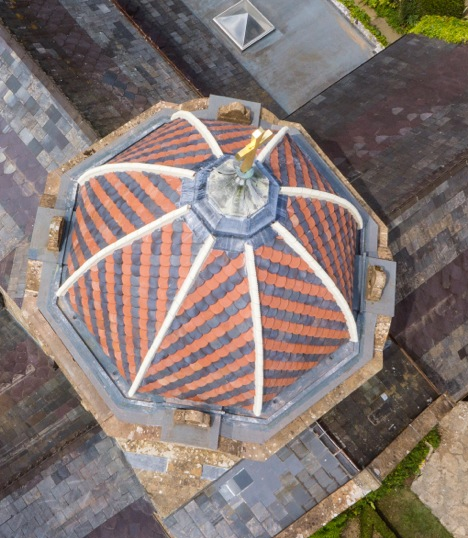 However, the success of this project wasn’t solely based on how the finished project looked (even though that was the ultimate aim). It was also a testament to how well all of the different parties worked alongside each other, from the architect right through to the contractors. The high level of co-operation – and the level of mutual understanding and expertise towards the project – meant that the dome was always in safe hands, and that standards of design, material and method were exemplary.
However, the success of this project wasn’t solely based on how the finished project looked (even though that was the ultimate aim). It was also a testament to how well all of the different parties worked alongside each other, from the architect right through to the contractors. The high level of co-operation – and the level of mutual understanding and expertise towards the project – meant that the dome was always in safe hands, and that standards of design, material and method were exemplary.
The result is architecture that not only honours the past and fits the present, but will stand well into the future.
For more information on Sandtoft, please visit www.wienerberger.co.uk. Follow Wienerberger on Twitter at twitter.com/wienerbergeruk









